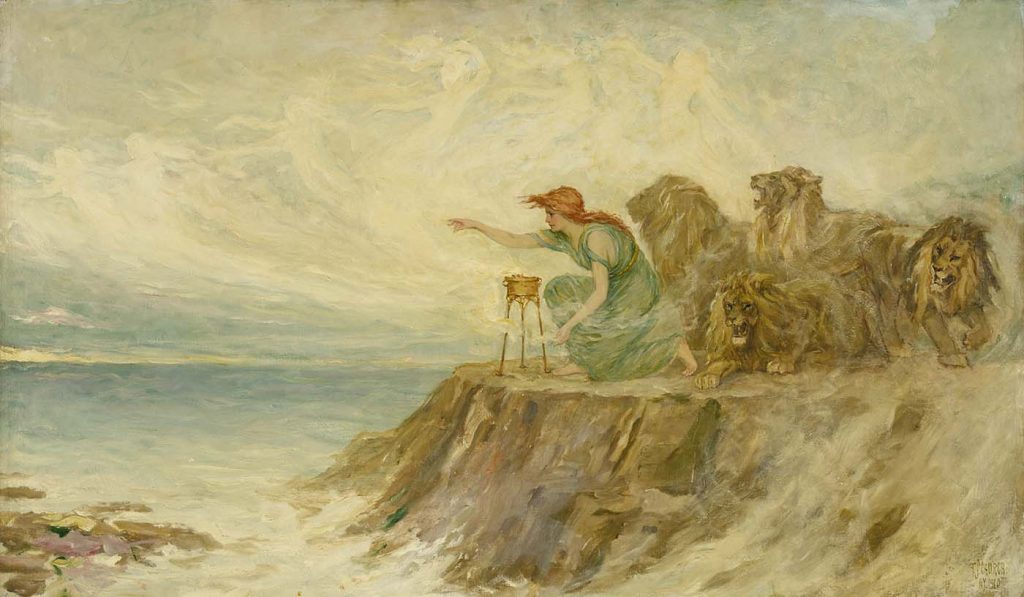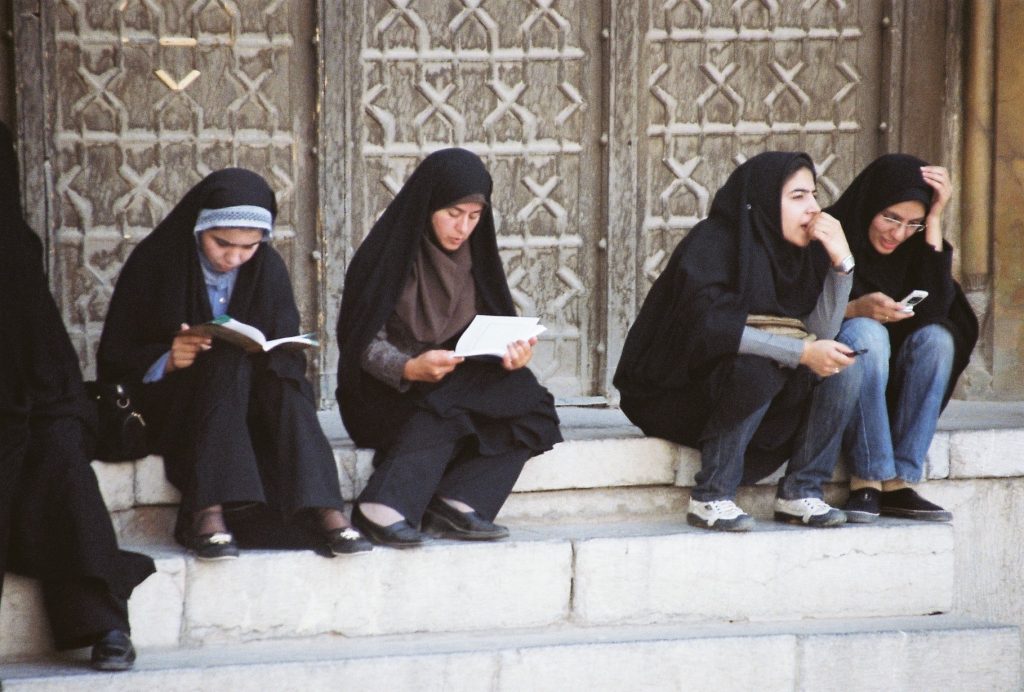Nonfiction by Mary Ebbott excerpted from our Spring 2017 issue.
I had read and even taught Homer’s Odyssey several times before I noticed that Odysseus has a sister. In fact, I became aware of her existence one day while teaching. It was the middle of the semester in my Greek and Roman Epic course. This is an introductory-level course in which we are reading the epics in English translations, and I do not assume that my students have any prior experience with them. We had read the Iliad in depth for several weeks and were now in the middle of the Odyssey, with the Aeneid yet to come. I was making some now-forgotten point about Eumaios, the noble and loyal swineherd, or maybe about Odysseus’s mother Antikleia and her death while Odysseus was away. I try to model paying attention to the details of the poetry and using evidence from the text, and so I flipped to this passage and started reading it aloud. Eumaios is answering the question the newly arrived stranger — Odysseus in disguise — has asked him, whether Odysseus’s mother and father are still alive. Eumaios has just told the stranger that Antikleia died from her grief over her missing son, and he reminisces about his own relationship with her. There I was, reading the passage to my students, when I came to these lines:
As long as that woman was alive, even though she was grieving,
it used to be my pleasure to ask her probing questions,
because she herself brought me up together with Ktimene of the flowing dress,
her devoted daughter, the youngest of the children she bore.
Together with her I was brought up, with just a little less honor.
Then when we both reached the lovely prime of youth,
her they gave in marriage at Samē and took countless gifts in return,
and then me — Antikleia, having clothed me in a cloak and tunic
and very beautiful clothes, and having given me sandals for my feet,
she sent me away to the fields. But she loved me with all her heart.
Odyssey 15.361–370
In my memory of the moment, my reading becomes more halting, my voice trailing off a bit as the information sinks in. Antikleia had a daughter? So Odysseus has a sister? Why didn’t I know that?
“Huh,” I said aloud, “I never realized Odysseus has a sister.” I was feeling both confused and exposed in my ignorance, so I went back to whatever my point was and moved on. If any of my students reacted to what I said, I didn’t notice. Since they were reading the Odyssey for the first time, perhaps every character and detail was new to them, and this was just one more detail to try to absorb.
I, though, couldn’t shake my bewilderment. After class, safe in the privacy of my office, I searched furiously for the passage that stated that Odysseus was an only child, or so I had thought. When I found it, I realized my mistake. Odysseus’s son Telemachos describes himself as an only son of an only son of an only son (Odyssey 16.117–120). Telemachos happens to be an only child, but Odysseus need not be. He just doesn’t have any brothers.
Soon after, a colleague stopped by to say hello and asked, as we do, how my class had gone. “Did you know that Odysseus has a sister?” I asked him.
“He does? Who is she?”
“Eumaios mentions her, says her name is Ktimene,” I replied. “How could I have never noticed her?”
To continue reading “Seeking Odysseus’s Sister,” purchase MQR 56:2 for $7, or consider a one-year subscription for $25.
Image: Church, Frederick Stuart. “Circe.” 1910. Oil on canvas. Smithsonian American Art Museum, Washington, D.C.




